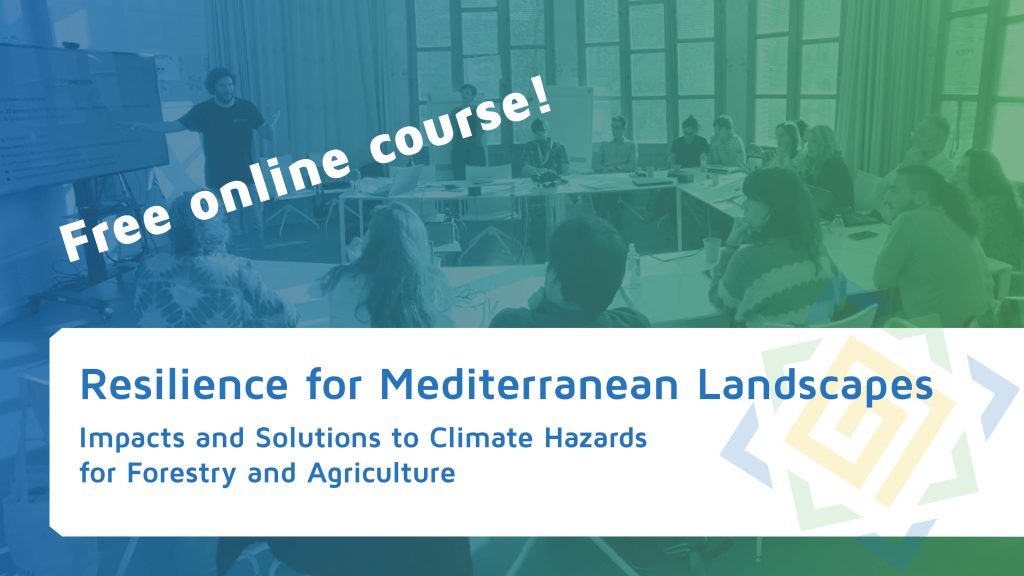
As the Mediterranean region grapples with intensifying climate hazards—from prolonged droughts and wildfires to forest degradation and soil erosion—resilience has become not just a buzzword, but a guiding principle for sustainable land and resource management. In response to these challenges, the ResAlliance project has launched a free online course, Resilience for Mediterranean Landscapes: Impacts and Solutions to Climate Hazards for Forestry and Agriculture.
This new MOOC (Massive Open Online Course) offers practical tools, theoretical foundations, and real-world case studies to equip forestry and agriculture professionals with the skills to foster climate-resilient landscapes.
Beyond training: a shift toward resilience thinking
This MOOC is more than just a learning opportunity—it’s part of a broader movement to embed resilience thinking into the core of land stewardship across the Mediterranean. Rooted in the evolving science of social-ecological systems, the course encourages adaptive and transformative strategies to maintain ecosystem functions, biodiversity, and rural livelihoods under increasing environmental uncertainty.
A systems approach to climate resilience
Resilience, as outlined in the ResAlliance knowledge brief Resilience Thinking: A Brief Overview, is not about returning to the status quo after disturbances. It involves the capacity of landscapes to persist, adapt, and transform. The course provides tools for assessing vulnerabilities, enhancing biodiversity, and implementing inclusive governance models—all fundamental for developing resilient forestry and agricultural systems.
Course structure: learning at your own pace
Participants are guided through an engaging structure combining theory, case studies, and hands-on activities:

The course consists of several modules that cover:
- Introduction to resilience thinking in Mediterranean contexts
- Identifying and analyzing climate hazards
- Designing adaptive land management strategies
- Real-world case studies from Mediterranean countries
- Peer collaboration and reflection
Who’s participating: a diverse, international audience
The course has already attracted a vibrant, international community. A total of 317 participants have enrolled from 48 countries, illustrating broad regional and global interest. While most of the students come from our LandLabs countries, the interest and network the MOOC has reached shows a huge range in terms of geographical distribution.
Country distribution of participants

Top participating countries include:

Learning through practice and collaboration
Beyond individual learning, the course fosters cross-sector and cross-border exchange. Participants interact in discussion forums, collaborate on practical exercises, and share solutions—echoing key resilience principles such as diversity, connectivity, and inclusive participation.
This peer-to-peer learning fosters a community of practice, enabling long-term connections among professionals committed to shaping multifunctional and sustainable landscapes.
A strategic step toward regional sustainability
Faced with the triple crisis of climate change, biodiversity loss, and rural decline, Mediterranean landscapes need informed, innovative responses. This MOOC represents a strategic effort to mainstream resilience thinking in forestry and agriculture, turning knowledge into action across policy, practice, and local communities.
Enroll now!
Take part in building resilient Mediterranean landscapes. Enroll in our free MOOC today and join a growing community committed to sustainable, climate-smart land management.
Visit our course page to enroll
Visit ResAlliance’s official website
This article was originally written by:
Matteo Gabaglio, Communication consultant (ETIFOR)
The post Empowering resilience: a new course tackles climate challenges in Mediterranean landscapes appeared first on Resilience Blog.